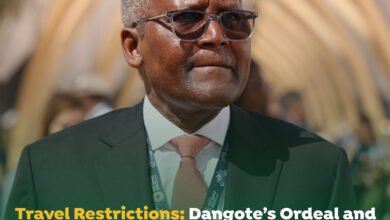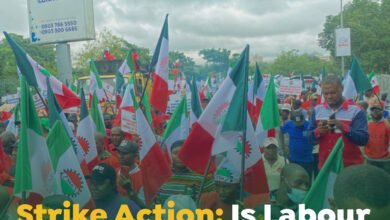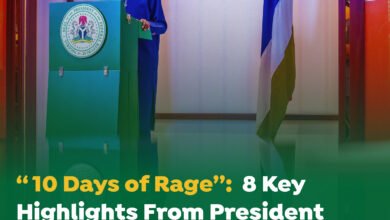President Tinubu Wants to Take Nigerians to the Promised Land but The Spirit is Willing and The Body Weak

In the not-so-nascent administration of President Tinubu, a series of ambitious reforms have been set into motion, heralding future prosperity for Nigeria. Yet, these reforms come with a paradoxical twist: the path to this envisioned future is paved with immediate hardships for the populace. This situation encapsulates the age-old contradiction between destination and journey, between the dream of a prosperous tomorrow and the gritty work and sacrifices required today.
Drawing inspiration from the biblical exodus of the Israelites, President Tinubu’s reform agenda can be likened to the migration towards a proverbial Canaan, a land of milk and honey, albeit through a wilderness of scorching sufferings.
President Tinubu’s reforms span various sectors, including economic restructuring, anti- corruption drives, and infrastructural overhauls. These reforms are designed to stabilize the economy, attract foreign investment, and ultimately improve the living standards of the Nigerian people. However, in the short term, they are predicted to exacerbate the struggles of a populace already burdened by economic hardships. The average Nigerian has come into the shoes of the biblical Israelites who, despite being freed from the shackles of Egyptian slavery—in our case, the burdensome fuel subsidy—faced decades of wandering in the wilderness before reaching their promised land.
The spirit of many Nigerians who understand the necessity of Tinubu’s reforms is undeniably willing and forward-looking.
The administration’s vision is one of long-term gain, rooted in the belief that temporary sacrifices are necessary for sustainable prosperity. However, the body is weak, battered and under continued battering by economic uncertainties and the immediate impact of these reforms. Price hikes, job insecurity, and a surge in living costs are short- term but presently overwhelming consequences that Nigerians have to endure as part of this transformative journey.
This dichotomy between the spirit and the body, between the envisioned prosperity and the present hardships, requires a delicate balance. The government faces the challenge of maintaining public trust and support through these trying times, ensuring that the spirit of hope and anticipation for a better future is not extinguished by the harsh realities of the present. Communication, transparency, and the implementation of mitigating measures to cushion the immediate impacts of the reforms are crucial in this regard.
Moreover, just as the Israelites relied on leadership, faith, and unity to navigate their wilderness, the success of Tinubu’s reforms will depend on effective leadership, public faith in the administration’s vision, and a unified approach towards national development. The administration must act as Moses did, guiding the nation through the wilderness with foresight, resolve, and an unwavering commitment to reaching the promised land.
Like the biblical exodus, this journey requires patience, resilience, and a collective belief in the destination.
The spirits that understand these reforms might indeed be willing to chart this arduous course towards a brighter future, but the spirit inhabits the body. This body must first be alive else the spirit joins it in painful death from hunger, soaring costs, and crushing hardship.





